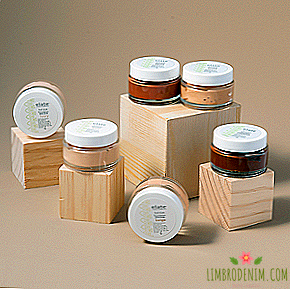If you think that you are worse than others: How to benefit from envy
ALL WE ARE FELT AT ONCE IN LIFEthat we strongly want what the other person has, at the same time feeling his own powerlessness: "I will never get it." In strong envy there is a lot of aggression, and often feelings that we are humiliated. Perhaps that is why envy is one of the most socially unacceptable feelings, it is customary to say: "I do not envy anyone," "Envy is bad," and the like. There are those who distinguish between "white" and "black" envy - and, if necessary, specify in a conversation with a friend that he is jealous of him, but "kindly". In fact, there is no "white" and "black" envy: it is one and the same feeling in different degrees. And saying: “I envy you in a white way” - a person usually wants to emphasize that his envy is socially acceptable, to show that he does not feel aggressive emotions towards the interlocutor and does not want to offend him - he simply recognizes his advantages in something. However, the share of aggression in envy is always there. We understand how this feeling arises and how to learn to treat it so that it is beneficial and not destroying.

"Just"
Usually we envy people who possess something that seems to us very desirable and at the same time difficult to reach (or completely inaccessible). A freshman, if he is not a candidate for expulsion, is hardly envious of a second-year student: later he will definitely be in the second and then in the third year of study. But one can be keenly envied by even teeth, charm, or work that brings pleasure if you don’t have all this.
Of course, we may well feel that we are in unequal conditions with those whom we envy: a person who graduated from a technical school due to the fact that his parents did not have money for paid tuition at a university can greatly envy a graduate of a prestigious foreign university. The object of our envy can have quite natural bonuses: talent or abilities, perfect health, a conventionally attractive appearance, or a happy family. A jealous person automatically becomes a hostage to the formula that, without possessing this set of properties, he is "worse than others." It annoys him that the object of envy got it all "just like that."
But do not confuse envy with a sense of injustice. This is her companion, but not a synonym. Someone can really take your place in the university due to nepotism, corruption and connections. But it is possible to waste university life to suffer when your classmate (who also came from a small city) quickly solves logical problems.
Unattainable ideal
The key element of envy is a sense of humiliation. When someone shines with us success, appearance, youth or other qualities that we consider to be advantages, we can feel insignificant and meaningless. This is a cyclical history: on the one hand, envy triggers heavy feelings, on the other - people who often experience humiliation and shame and are more likely to envy.
Often, those who in their childhood felt deprived, whom they scolded, shamed and humiliated, have grandiose fantasies as a defense mechanism: “I’ll become President / World Champion / star of the dance floor - and no one dares to look down on me anymore. ”“ I get incredibly rich and buy myself everything that I envy now: a bunch of expensive clothes, a car, a yacht, a house. ”“ The most beautiful man or woman will fall in love with me without memory, and then they envy our gorgeous pair. "
You may not admit to others that you are jealous, but allow yourself to feel it inside. Any depressed feeling does not disappear, but breaks out in a distorted form.
Since these fantasies are often unrealistic, a person continues to envy, torn between his own, as it seems to him, humiliating present and dreams of a grand future. In fact, the reason is still in the same sense of humiliation: the person experiencing it wants to somehow correct his condition. It seems to him that he will feel better, being "a few steps higher." But this is a dead-end path: no matter how high he or she is, the feeling of humiliation does not go away and makes them envy those who are even a few steps higher.
Envy is also often inclined by people who are confident that unconditional love and acceptance do not exist, and they value us only for success and achievement. Then those who have or achieved more literally take away from them a valuable resource: sympathy, attention and love of those around them.

Accept yourself
What if you notice such feelings behind you? First of all, it is worthwhile to forgive oneself for attacks of envy: permanent reproaches cause even more pain and shame. You may not admit to others that you are jealous, but allow yourself to feel it inside. Any depressed feeling does not disappear, but breaks out in a distorted form - for example, in the form of active or passive aggression towards those to whom we envy, or in the form of auto-aggression and the feeling that we are useless, or, eventually, in the form of depression and depression : since you can’t want anything that others have, I won’t want anything at all.
In addition, envy has, albeit unobvious, but advantages. First, not all people even know what they want, but those who are jealous usually understand this - envy can be a good compass. Secondly, envy is often characterized by energetic people. And if this energy is redirected to another channel, it will help achieve a lot.
Avoid slander and the depreciation of others - it does not help you, although envy can push it. You can honestly be angry that one of your friends has some inaccessible benefits to you. But it is not necessary to reduce any person to the “privilege” itself - to devalue its work and diligence. In addition, the best result could be achieved by a person of equal starting opportunities with you. And your envy it still did not stop.
In any case, if you feel that you are jealous of someone too much, and a person causes permanent malice in you, then it’s time to distance yourself: unsubscribe from instagram or stop discussing any topics at least for a while. Anyway, nothing good will come out of communication filled with latent aggression.
Analyze and grieve
Then begins the most important work - to understand what and why you are jealous. For example, you envy a friend who rested for two weeks in the Maldives with her husband. What do you have the most envy in this picture: wealth? Possibility two weeks not to work? Husband? Turquoise water on the coast or a photo of long tanned legs in a bathing suit? It is likely that now you do not have the resources to assemble this beautiful puzzle entirely. But what you envy the most, you can get in parts.
Do not rush to put an end: "Who needs a wild beach in the Krasnodar region, for which I have enough money?" Envy says that you lack something pretty much (this is not necessarily money), and you need to fill this gap. Perhaps you envy a beautiful photo - then you can order a photo session or ask friends who are well photographed, take pictures of you. If painful jealousy causes a carefree way of life, as you think, it means that you need rest and freedom from obligations most of all, and you need to organize yourself at least one weekend of doing nothing, and it is better to take a week off.
If you feel that you are jealous too much, and a person causes permanent anger in you, then it’s time to distance yourself
It is important not to slip into the “all or nothing” setting and not detract from the opportunities that you have. This gives rise to the most toxic envy, which is popularly called “black” - with a large share of humiliation, feelings of powerlessness and aggression.
Another component of envy, quite unobvious, - and this is regret. Some things you just will not. There will be no perfect health if you have been diagnosed with a serious illness. There will be no childhood memories of a supporting family, if the parents had alcohol dependence, they constantly went into binges, and at home there was nothing to eat. There will be one marriage for life, if you are already divorced. It is not easy to accept - realizing this, a person experiences real grief. And these feelings are important to live. Unlived feelings influence us more than it is customary to think: the less we are aware of our experiences, the more they control us. Envy in this case turns into the very “black” envy and aggression towards other people, and sadness turns into depression or a feeling of insolvency.
You can write yourself a letter "in childhood", sympathizing with and regretting how it evolved. Or write (without sending) a letter to parents: tell them how their behavior hurt, offended, admit that you are angry with them and why they are disappointed. You can draw pictures of your inner state in those moments when you feel unfairly bypassed by life, or just cry to the sad music. Perhaps these exercises should be repeated periodically. In order to “warm up” all the unrealized opportunities that you envy others, it’s really important to spend time. Without acceptance of the restrictions, there will be no further movement.
Images: bloomicon - stock.adobe.com




